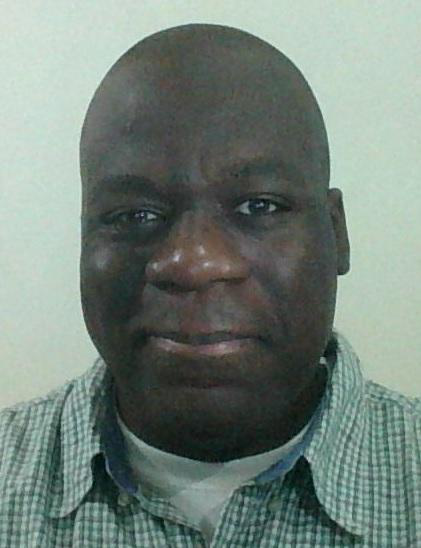Those who are very quick to borrow money are usually the same ones too slow to pay it back. The typical American makes less than $49,000 annually, or just about $936 weekly. And the average American household is saddled with over $135,700 in debts. Most people conduct their personal finance practices as if being in perpetual debt was a normal thing. So, if you’re lucky enough to succeed in paying off all debt, what to do next?
If you have truly succeeded in paying off all debt, you may be on your way to financial independence. Becoming debt free is one of the prerequisites required to finally become rich.
That explains why they are called the, “1%.” By some estimates, over 80% of Americans are financially weighed down by debt.
Think about that in a broader context.
The Impossibility of Paying Off All Debt
If you stood on a street corner and took notice of 10 people walking by, 8 of them are probably saddled with unmanageable debt.
Paying off all debt is not an overnight project. It takes years.
Let’s pretend you owe $135,000. If you pay it off $1,500 a month at 6.5% interest, then it would take 10 years and 4 months to pay it back.
Try paying that back at less than $1,500 monthly at a higher interest rate then it would take longer than a decade to succeed.
The point is that it takes a long time to manifest an ambition of living a debt-free life.
And the truth is that most people don’t ever succeed in eliminating debt from their lives.
Have you succeeded in paying off all debt? Here are a few things you should do next.
Acknowledge You’re Paying Off All Debt – So You Won’t Repeat Past Mistakes
You did something special here! Acknowledge it and remember how you did it so you won’t do it again.
Remember – 8 out of every 10 people in the United States are personally weighed down by unmanageable debt.
Think about what it was like to be in perpetual debt and borrowing money from everyone you know.
Or pinching every penny and financially sacrificing as much as possible.
Acknowledge that you have paid off all your debt. You will now have extra money coming in every month without having to worry about debt.
You don’t have to worry about creditors hounding you.
Think about what you did to get to this point and don’t forget it. There is no reason to go backwards now, is there?
You have come a long way, so keep going forward.
But before that, why not celebrate?
Reward Yourself
You just finished paying off all debt, so don’t go overboard, but reward yourself.
Treat yourself to a fancy expensive dinner.
Go on a one-week getaway trip.
Just don’t do anything that will put you right back into hilariously deep debt.
Now that the festivities are over, its time to plan for your financial future.
What will you do with all of the debt-free income you now have coming in?
Prioritize Your Future Financial Ambitions
Now that you’ve taken it all in and treated yourself, ask yourself:
What’s next?
You succeeded in paying off all debt. Now that you don’t have to experience more grey hairs over debt, what do you want to do?
Now you need to sit down and brainstorm your future financial goals for the next 10, 20, and 30 years of your life.
Do you want to own a home? Maybe you want to launch a business?
What are your future financial goals? How will you accomplish them? And, how much will it cost?
While you are thinking about that, now is a good time to think about prudent investing strategies.
Invest Wisely
There are a few basic things you must do after paying off all debt if you want to become financially independent.
Now that you are out of debt, you should want to start generating more income.
Start investing wisely. You could start developing a diversified investment portfolio with the help of a financial adviser.
Personally, I would invest in the entertainment, lodging, and airline industry. Within a decade, when the virus is under control, any investments in these areas should pay back solid returns.
However, that is my opinion.
This is your money. So, you should research which investments interest you, have value no one else recognizes, and strategize potential ROI benefits.
If you make the right investments, you will almost guarantee additional supplemental income in the future.
Making the best investment judgments will take time. You will have a lot of it now since you have paid off your debts.
While you’re thinking about investments, you should be thinking about saving for future emergencies.
Augment Your Emergency Fund
Just because you are out of debt doesn’t mean that you should take for granted you will always be debt-free.
You should have a rainy day or emergency fund set up. And you should boost how much you put into it.
There is no general rule of thumb concerning how much money you should have in an emergency fund.
Some experts believe that you should have anywhere between $2,500 to $15,000 in an emergency fund.
After paying off all debts, create an emergency fund that could save you in case you fall into another debt trap.
Banish Temptation
Money is a tool. When you have enough money, you have more options in life.
When you’re mired in debt, one thing you don’t have a lot of is options.
Get rid of your credit cards.
Always think about need over want when you consider purchases.
Debt is a mindset. When you’re mired in debt, usually the only way to get out of debt is to acquire more debt.
It’s a vicious mindset that keeps people in a debt quagmire all of their lives.
You just got out of debt. Avoid all temptations that will take you back to square one.
Read More
DON’T MAKE THESE ESTATE PLANNING ERRORS
CHECKLIST OF THINGS TO DO WHEN YOU FIRST MOVE IN YOUR HOME
ARE FOOD SUBSCRIPTION BOXES WORTH IT?
CARD CRACKING FRAUD MAKES YOU AN UNWITTING CRIMINAL
IS IT BETTER TO FILE BANKRUPTCY OR DO DEBT CONSOLIDATION?

Allen Francis was an academic advisor, librarian, and college adjunct for many years with no money, no financial literacy, and no responsibility when he had money. To him, the phrase “personal finance,” contains the power that anyone has to grow their own wealth. Allen is an advocate of best personal financial practices including focusing on your needs instead of your wants, asking for help when you need it, saving and investing in your own small business.
